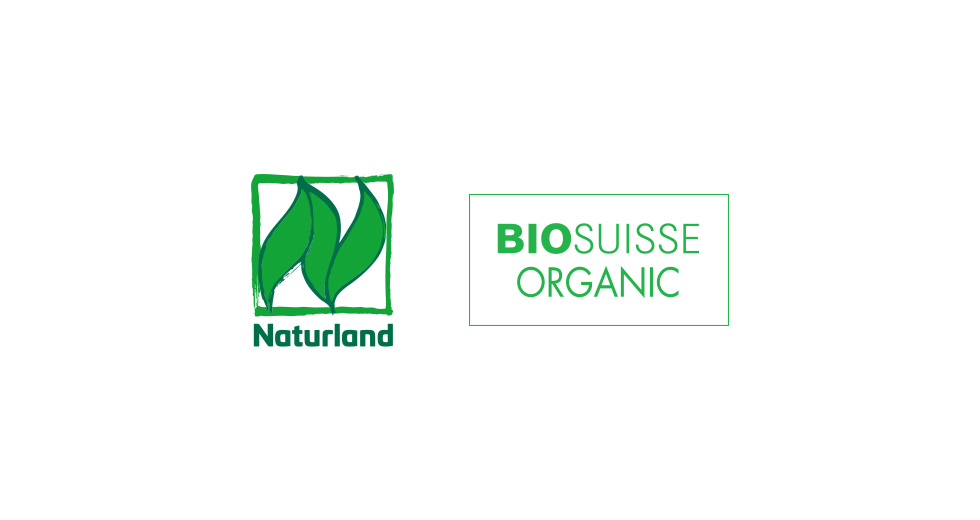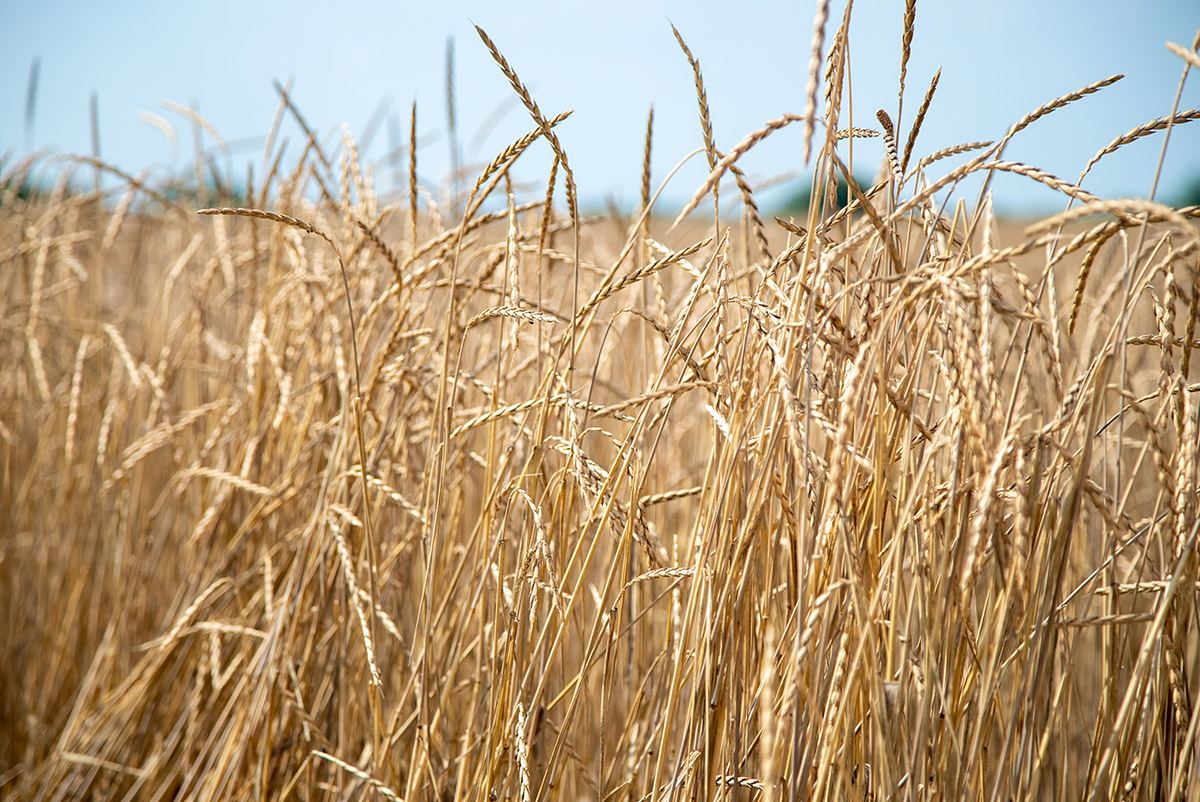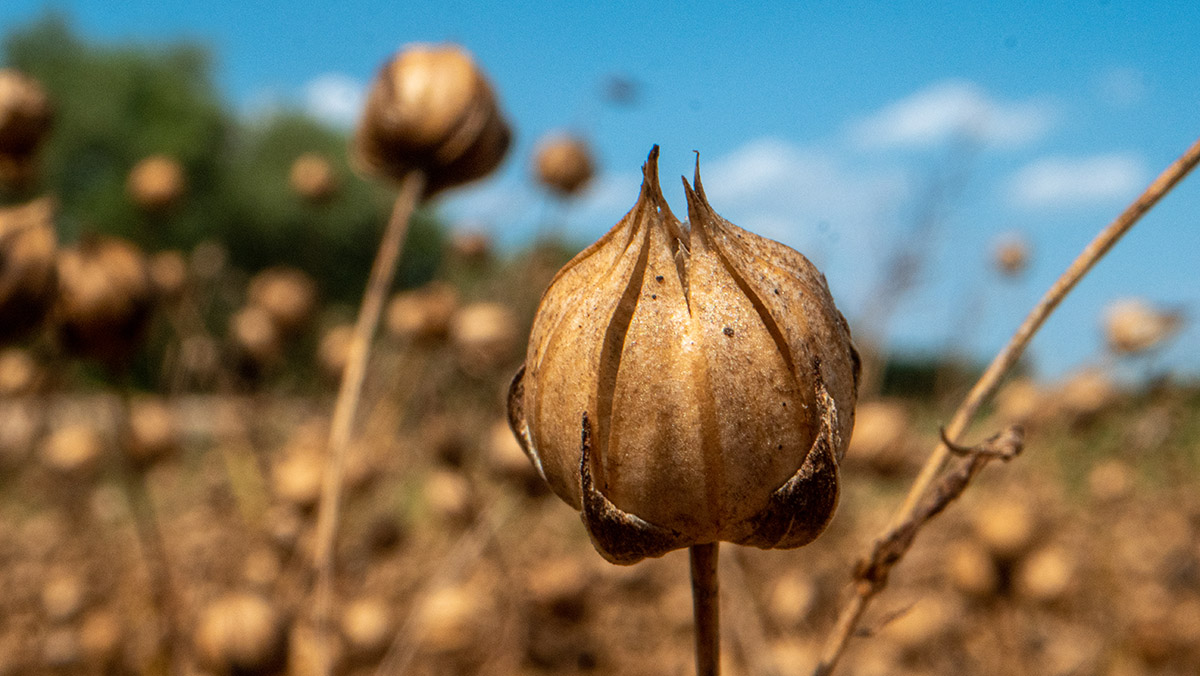Njamito Goes Fairtrade for Cocoa and Vanilla
March 31, 2025Njamito is now Fairtrade certified for cocoa and vanilla! Here’s what that means for farmers, the planet, and the values behind our meal-in-a-bottle.
Read articleWe renewed our BioSuisse and Naturland Organic Certificates, reinforcing our commitment to organic farming, biodiversity, and fair labor practices.

Following last month’s renewal of the EU Organic certificate, we have now also renewed two additional organic certifications with even stricter organic standards: BioSuisse and Naturland. These certifications are renewed annually to ensure we continuously meet rigorous requirements.
BioSuisse is a private organic certification with stricter requirements in certain areas (e.g., biodiversity) and is essential for the sale of organic products in Switzerland. This marks our second renewal, having first achieved BioSuisse Organic certification in 2022.
All our crops are BioSuisse certified, except for rye, which we discontinued to grow as we transition to gluten-free production.

Naturland is a global association for organic agriculture with one of the most rigorous, internationally recognized certifications. We first received Naturland certification in 2023, and this is our first renewal, covering our linoleic and confectionary sunflower varieties and chickpeas, with flax newly added this year. Despite focusing on three crops, our entire production process continues to adhere to elevated and more stringent organic and social standards.

The audits for both certifications involved an in-depth review of multiple areas of our farming operations, including a close examination of our fields, terrain hygiene, and crop conditions. The auditors also examined traceability documentation, sales records, harvest summaries, crop rotations, and warehouse management. Our adherence to strict organic standards was consistently demonstrated through the audit process. Special focus was given to how we separate organic and organically grown crops sold without organic certificates, as well as our internal risk management practices.
BioSuisse has several specific requirements, including restriction on hybrid seeds usage and a minimum of 7% of area dedicated biodiversity, which for us translates to 259 hectares. We exceed this requirement with 476 hectares dedicated to biodiversity. BioSuisse also mandates that 20% of crops are dedicated to soil health improvement; we comply at 23.5%. Additionally, stricter guidelines apply to fertilizer and plant protection usage, irrigation standards, and social responsibility toward employees, all of which we fully meet.
For Naturland, biodiversity maintenance rules are also stringent, though do not specify an exact percentage of area. The standard also includes strict regulations on irrigation and allowed active substances for fertilization and plant protection. In our crop rotation, one-fifth of arable land must be planted with legumes; we exceed this requirement with 845 hectares. Additionally, employee working conditions are rigorously monitored.
Our commitment to transparency and traceability remains strong, with detailed traceability sheets available on our wholesale page. These sheets provide insight into the cultivation, harvesting, and handling of each crop, as well as the certifications each product holds.
These renewed certifications affirm our commitment to sustainable farming, producing food that meets the highest standards while contributing to a healthier planet.
Njamito is now Fairtrade certified for cocoa and vanilla! Here’s what that means for farmers, the planet, and the values behind our meal-in-a-bottle.
Read articleIdealism met reality as we launched our meal-in-a-bottle, Njamito. After 100.000 bottles sold, here’s what we learned about organic food and market adaptation.
Read articleWith organic seeds in short supply, we launched our own organic seed production journey to secure sustainable farming practices.
Read article